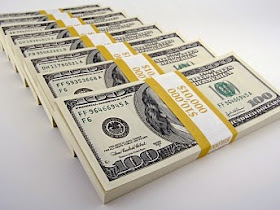Unlike the Art of War cult, most of the members of Compass360 Consulting are not devotees of pop culture. Other than watching competitive pro sports and business channels, standing still, walking circles and listening to Mozart, we are focused on their plateau of the "grand strategy" game.
In the information economy, the non-innovative competitors will do whatever it takes to gain some market equilibrium.
While scanning through Google News today, one of us discovered this interesting legal case between The Marvin Gayle Family and Allan Thicke, Pharrell Williams and Rapper T.I.
Lesson
IP thievery will constantly occur.
Study the history of your competitive terrain during your down time and understand the proclivity of the top contenders and the up and coming pretenders. Then you will understand what competitive darwinism is. Human behavior does not change that much.
Avoid the Matthew Effect by building internal safeguards that allow your operational team to capitalize on the greed and the errors of the thieves.
The Matthew Effect
In the sociology of science, "Matthew effect" was a term coined by Robert K. Merton to describe how, among other things, eminent scientists will often get more credit than a comparatively unknown researcher, even if their work is similar; it also means that credit will usually be given to researchers who are already famous.[6][7] For example, a prize will almost always be awarded to the most senior researcher involved in a project, even if all the work was done by a graduate student. This was later formulated by Stephen Stigler as Stigler's law — "No scientific discovery is named after its original discoverer" — with Stigler explicitly naming Merton as the true discoverer, making his "law" an example of itself.
- Laboratory and natural experiments manipulate download counts or bestseller lists for books and music show consumer activity follows the apparent popularity.[8][9]
- In algorithmic information theory, the notion of Kolmogorov complexity is named after the famous mathematician Andrey Kolmogorov even though it wasindependently discovered and published by Ray Solomonoff a year before Kolmogorov. Li and Vitanyi, in "An Introduction to Kolmogorov Complexity and Its Applications" (p. 84), write:[10]
- Ray Solomonoff [...] introduced [what is now known as] "Kolmogorov complexity" in a long journal paper in 1964. [...] This makes Solomonoff the first inventor and raises the question whether we should talk about Solomonoff complexity. [...]
- There are many uncontroversial examples of the Matthew effect in mathematics, where a concept is due to one mathematician (and well-documented as such), but is attributed to a later (possibly much later), more famous mathematician who worked on it. For instance, the Poincaré disk model and Poincaré half-plane model of hyperbolic space are both named for Henri Poincaré, but were introduced by Eugenio Beltrami in 1868 (when Poincaré was 14 and had not as yet contributed to hyperbolic geometry).
- A model for career progress quantitatively incorporates the Matthew Effect in order to predict the distribution of individual career length in competitive professions. The model predictions are validated by analyzing the empirical distributions of career length for careers in science and professional sports (e.g.Major League Baseball).[11] As a result, the disparity between the large number of short careers and the relatively small number of extremely long careers can be explained by the "rich-get-richer" mechanism, which in this framework, provides more experienced and more reputable individuals with a competitive advantage in obtaining new career opportunities.
- In his 2011 book The Better Angels of Our Nature: Why Violence Has Declined, cognitive psychologist Steven Pinker refers to the Matthew Effect in societies, whereby everything seems to go right in some, and wrong in others. He speculates in Chapter 9 that this could be the result of a positive feedback loop in which reckless behavior by some individuals creates a chaotic environment that encourages reckless behavior by others. He cites research by Martin Daly and Margo Wilson showing that the more unstable the environment, the more steeply people discount the future, and thus the less forward-looking their behavior.
In science, dramatic differences in the productivity may be explained by three phenomena: sacred spark, cumulative advantage, and search costs minimization by journal editors. The sacred spark paradigm suggests that scientists differ in their initial abilities, talent, skills, persistence, work habits, etc. that provide particular individuals with an early advantage. These factors have a multiplicative effect which helps these scholars succeed later. The cumulative advantage model argues that an initial success helps a researcher gain access to resources (e.g., teaching release, best graduate students, funding, facilities, etc.), which in turn results in further success. Search costs minimization by journal editors takes place when editors try to save time and effort by consciously or subconsciously selecting articles from well-known scholars. Whereas the exact mechanism underlying these phenomena is yet unknown, it is documented that a minority of all academics produce the most research output and attract the most citations.[12]
- http://en.wikipedia.org/wiki/Matthew_effect
Comments From the Compass Desk
To prevent the Matthew's Effect, it is important to develop a sense of mindful strategic awareness.
The attribute usually enables one to achieve "a complete victory" that is not impacted by self-afflicted pains.
The challenge is doing it on a 24/7 mode.

%2B.jpg)
No comments:
Post a Comment